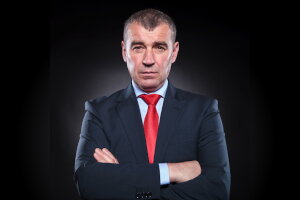
You had a great set of interviews. Or at least it seemed like it all went well. Then you wait. And nothing happens. You wait for the phone to ring, you wait for the email, but you get nothing.
What went wrong? Why didn’t your interviews magically produce a job offer?
Many candidates think their part is over once the interviews are completed. Just sit back and wait for the offer.
The reality is that there are many, many things that could be taking place on the employer side after the interview. While getting an offer may be the first priority item in your life, that may not be the case for the employer. You may be one candidate out of many for the role. And this role may be one out of many for the employer. And for most people on the interview team, providing interview feedback and making a hire decision are not usually the core responsibilities of their job. Interviewing is typically a sideline activity. Without someone driving through to a decision, the timeline can often languish.
So follow these steps to drive the process from interview to decision. Note that I did not say interview to offer, but interview to decision. The decision may be to offer, but it may also be not to offer. Either way, you will have closure with the employer and know what to do next in your job search.
First of all, follow up actually starts in the interview itself. Your last question for the hiring manager (the person responsible for hiring the role) should be a combination statement/question: “I’m very interested in this role. What are the next steps?” If you want to be more aggressive, you can ask: “What are the next steps and timing?” By doing so, you have both established your interest and set a follow up schedule. If they say they still have other candidates to interview or respond open ended, you can firm up the timing by asking: “When do you expect to make a decision on me for this role?” Yes, it’s aggressive, but yes, it works. It forces a decision timeline from the employer, whether one was already planned or not.
Second step is to immediately follow up with a thank you email to everyone you met with for interviews. How do you know their email address? You should ask for a business card at the end of each interview. If someone does not have one, ask for their email address so that you can follow up with a thank you note after the interview. Then make sure you get it out that evening, so that they have it in their email by morning. If there is an interview debrief, you want this in their hands before that meeting takes place.
Third step is to follow up with your key contact. This contact will be the Recruiter or the Hiring Manager, whichever is managing your interviewing process. Follow up based on the timing given in step one. If they said they expect to get back to you within three days and that timeline has elapsed, give them a call or send an email asking for an update.
If you have another opportunity pending, let them know about it. While it can be difficult to get all pending offers to come together in a grand crashing crescendo, it can be done if you prompt each employer on the timing of the other employers. Best of all worlds is that you will have several offers among which to select the one that is best for you.
But even if this is your only pending opportunity, it is important to drive through to a decision. Follow the three key steps above to follow up after the interview. By doing so, you will continue to keep your name front and center with the employer for consideration for the role.



